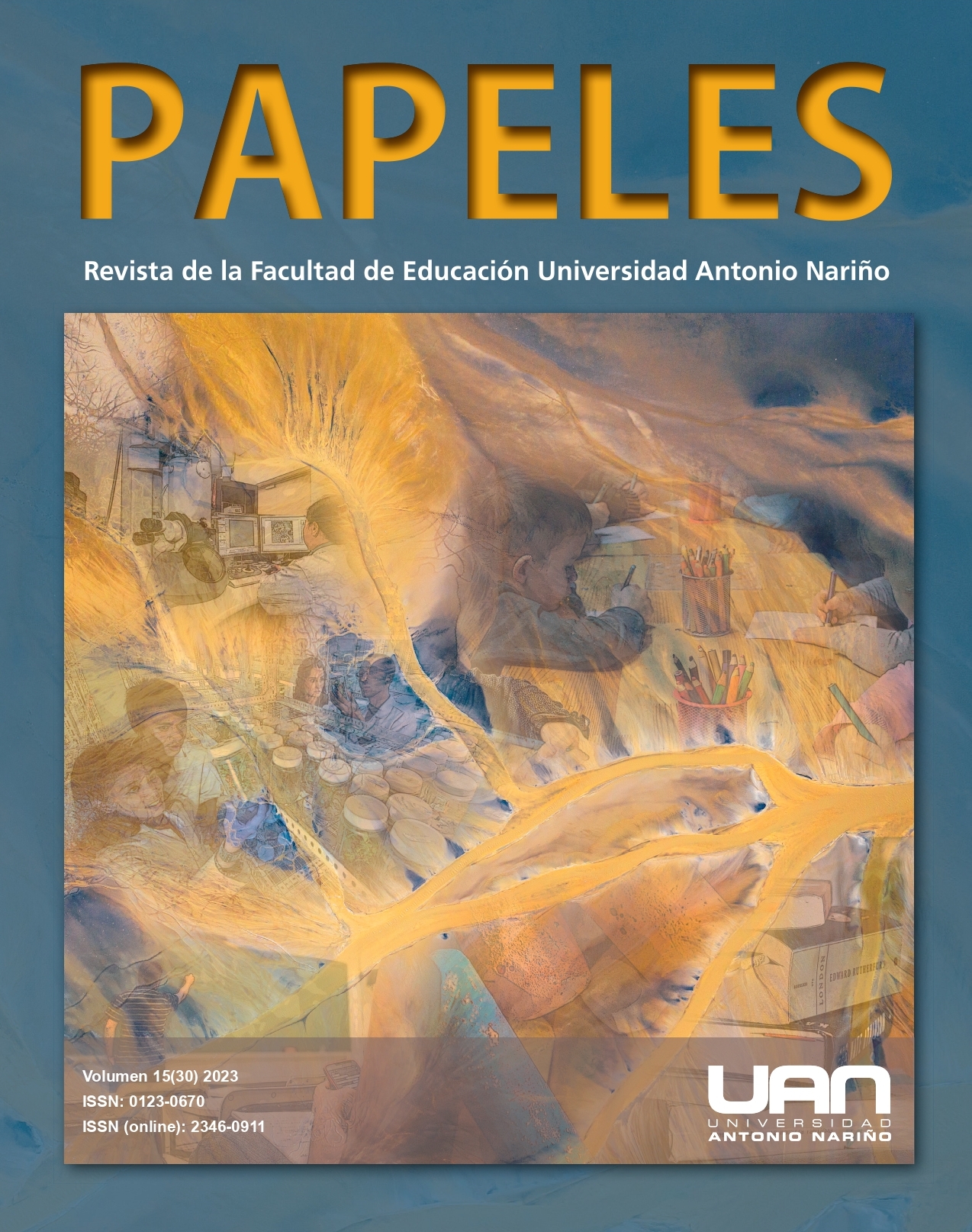Microteaching: Methodology for the Development of Skills in Teacher Training in Educational Sciences. Perception of the Students of the University of Costa Rica
La microenseñanza: metodología para el desarrollo de habilidades en la formación docente en ciencias de la educación. Percepción del estudiantado de la Universidad de Costa Rica
DOI:
https://doi.org/10.54104/papeles.v15n30.1589Keywords:
Educational practice, teaching method, learning, teacher training, higher educationAbstract
Introduction: Microteaching is a strategy of simulation of the professional task for the development of skills, in this case, it is a teaching process that, subsequently, is analyzed in order to reflect on actions that lead to the improvement of Costa Rican education. The purpose of this study is to describe the perceptions of the student body participating in the simulation of a class to determine the benefits and contributions it provides to teacher training. Methodology: 40 teacher training students participated in the workshop; it was carried out in three phases: first, planning, then execution, and finally, feedback of the process. Results and discussion: The information obtained and analyzed revealed as areas of interest, the planning of a class, educational practice, group management in the classroom and the contribution of microteaching to the teaching task, which were experienced through the integration of theory and practice. Conclusions: In response to the problem question, What is the contribution in teacher training? the study concludes that, students require praxis for their training and, microteaching has proven to be a didactic strategy that allows the development of teaching skills and ensures deep learning by means of autoscopy during feedback; therefore, it invigorates the formative process of the students and the University.
Downloads
References
Anderson, S. E. (2016). Desarrollo de las habilidades docentes: Implicaciones para el director [ponencia]. Seminario Internacional “Directores para la nueva institucionalidad de la educación chilena”, Santiago de Chile. https://www.lidereseducativos.cl/wp-content/uploads/2016/12/NT-1-Desarrollo-de-las-Habilidades-Docentes.pdf
Atondo Rodríguez, E. (2019). El distanciamiento entre la teoría y la práctica en la labor docente: Un reto para las escuelas de profesorado. Qurriculum, 32, 183-194. https://doi.org/10.25145/j.qurricul.2019.32.10
Bernárdez-Gómez, A., Belmonte, M. L. y Galián, B. (2020). Microenseñanza y autoscopia como elementos de evaluación docente de la teoría a la práctica. Meta: Avaliação, 12(37), 848-868. http://dx.doi.org/10.22347/2175 - 2753v12i37.273 3
Campuzano-López, J. G., Zambrano-Zambrano, J., Mero-Ponce, J. y Quiroz-Parrales, L. (2021). La realimentación como estrategia para mejorar el proceso de enseñanza-aprendizaje en los estudiantes. Dominio de las Ciencias, 7(4), 57-69. http://dx.doi.org/10.23857/dc.v7i4.2081
Dulsat-Ortiz, C. (2019). Microenseñanza en el laboratorio de ciencias para el alumnado del Grado de Educación Infantil. Revista Científica, 36(3), 367-380. https://doi.org/10.14483/23448350.14769
Gambarini Duarte, M. F. y Cruz Cruz, M. P. (2019). Habilidades docentes en comunicación eficaz: Ejercicio de liderazgo centrado en la misión docente. Aularia, 1, 9-20. https://rabida.uhu.es/dspace/bitstream/handle/10272/15778/Habilidades.pdf?sequence=2
García-Rangel, E., García Rangel, A. K. y Reyes Angulo, J. A. (2014). Relación maestro-alumno y sus implicaciones en el aprendizaje. Ra Ximhai, 10(5), 279-290. https://www.redalyc.org/pdf/461/46132134019.pdf
Hernández Sampieri, R., Fernández Collado, C. y Baptista Lucio, M. del P. (2010). Metodología de la investigación. McGraw-Hill.
Jiménez Yáñez, C. E., Martínez Soto, Y., Rodríguez Domínguez, N. A. y Padilla Hacegaba, G. Y. (2014). Aprender a hacer: La importancia de las prácticas profesionales docentes. Educere, 18(61), 429-438. https://www.redalyc.org/pdf/356/35639776005.pdf
Jiménez-Calixto, Z., Pérez-Ramos, M. G., Ortega-Pérez, E. y Rodríguez-Martínez, M. A. (2015). La microenseñanza como estrategia de mejora en la práctica del docente. Revista de Investigación y Desarrollo, 1(2), 81-89. https://www.ecorfan.org/spain/researchjournals/Investigacion_y_Desarrollo/vol1num2/2-Investigacion-y-desarrollo-81-89.pdf
Nieto León, A. y Ramón Santiago, P. (2013). Microenseñanza: Una técnica para motivar el enseñar y aprender investigando. Espectros, 52, 23-31. https://doi.org/10.19136/pd.a0n52.225
Peleberg, A. (1970). Microenseñanza: Un innovador procedimiento de laboratorio para mejorar la enseñanza y el entrenamiento de profesores. Anuies, 1(3) 1-15. http://publicaciones.anuies.mx/acervo/revsup/res002/txt4.htm
Riascos-Hinestroza, L. E. y Becerril-Arostegui, I. (2021). Liderazgo educativo docente: Un modelo para su estudio, discusión y análisis. Educación y Educadores, 24(2), 243-264. https://doi.org/10.5294/edu.2021.24.2.4
Sánchez Sánchez, G. y Jara Amigo, X. (2018). Habilidades profesionales asociadas a la docencia: Fijando posiciones de profesores en formación. Sophia Austral, 22, 247-269. http://dx.doi.org/10.15359/ree.20-2.17
Sarrelangue-Sanabria, M. (2020). Microenseñanza para el desarrollo de competencias en la educación superior. Gestión Universitaria, 4(12), 32-38. http://dx.doi.org/10.35429/jum.2020.12.4.32.38
Downloads
Published
-
Abstract1166
-
PDF (Español)2401
How to Cite
Issue
Section
Categories
License
Copyright (c) 2023 Catty Orellana

This work is licensed under a Creative Commons Attribution-NoDerivatives 4.0 International License.






